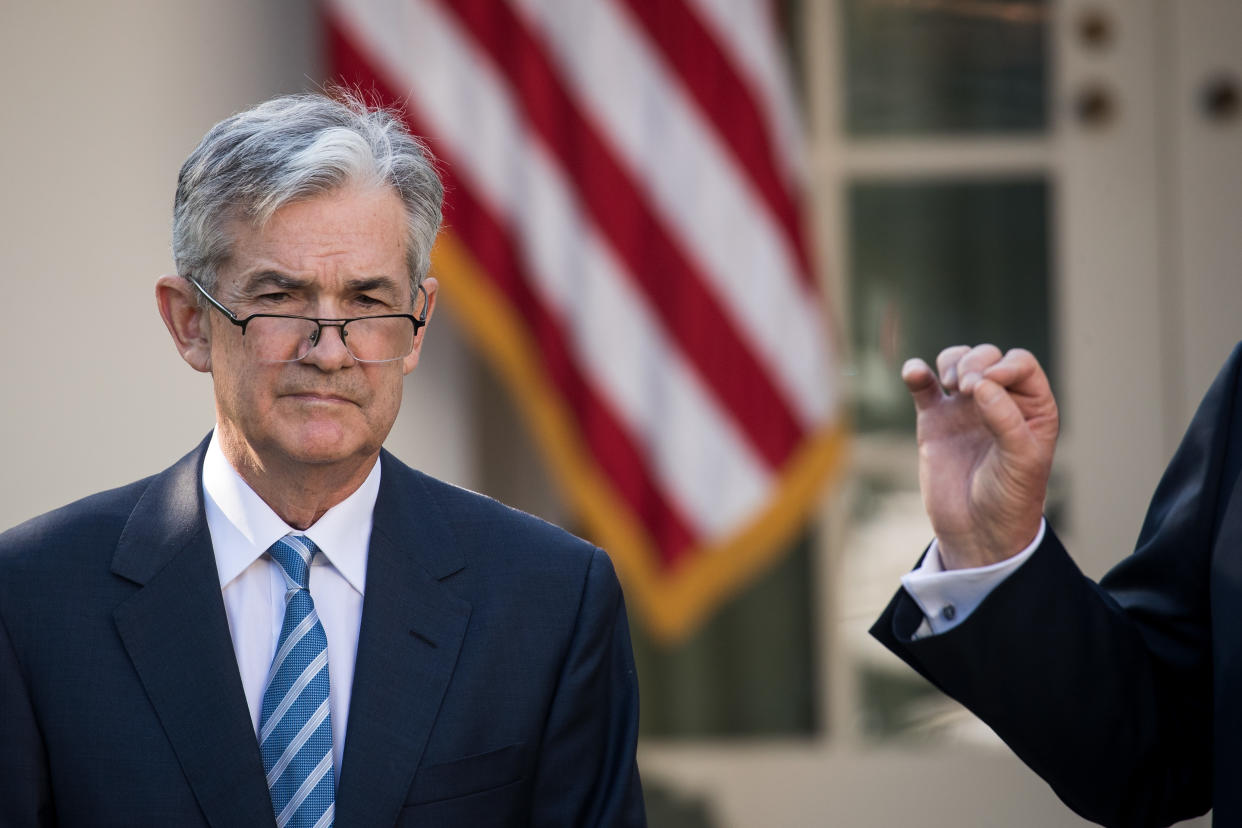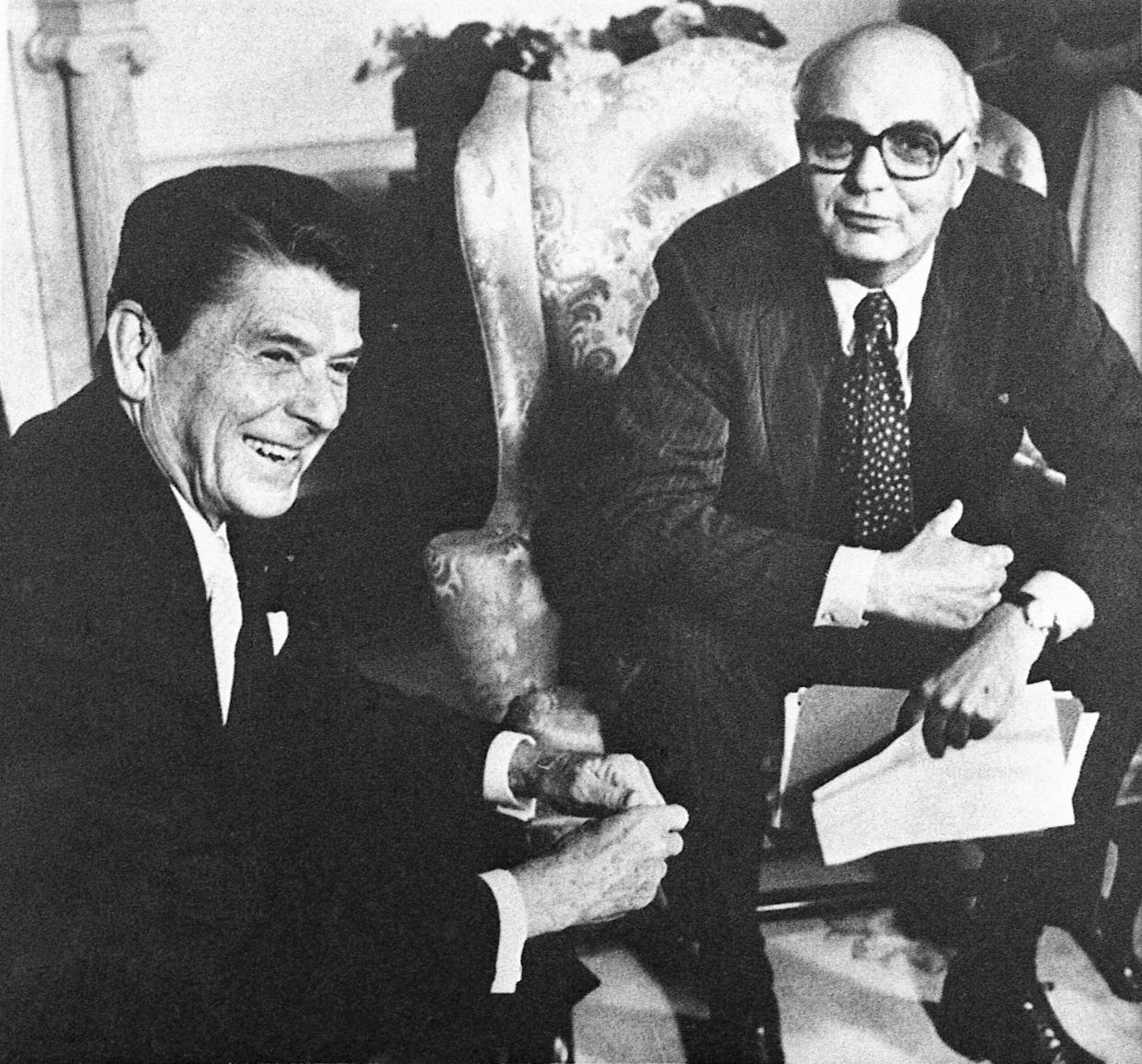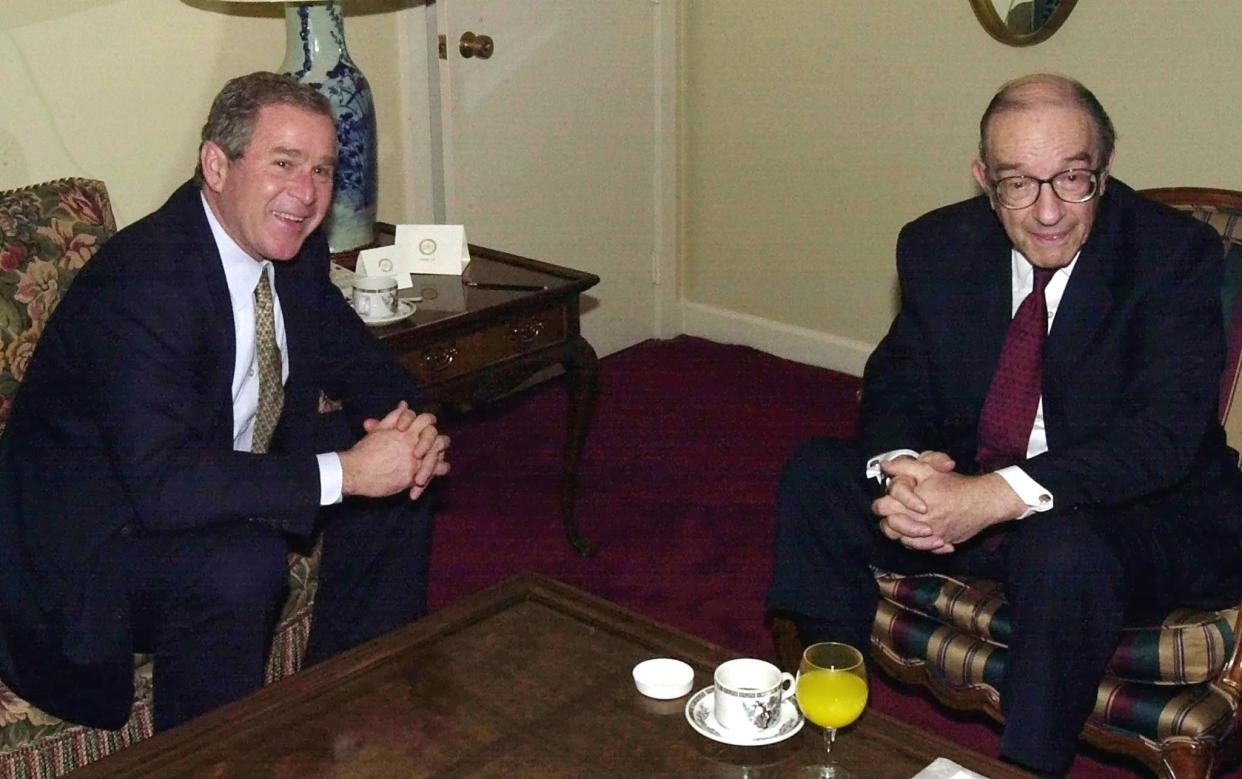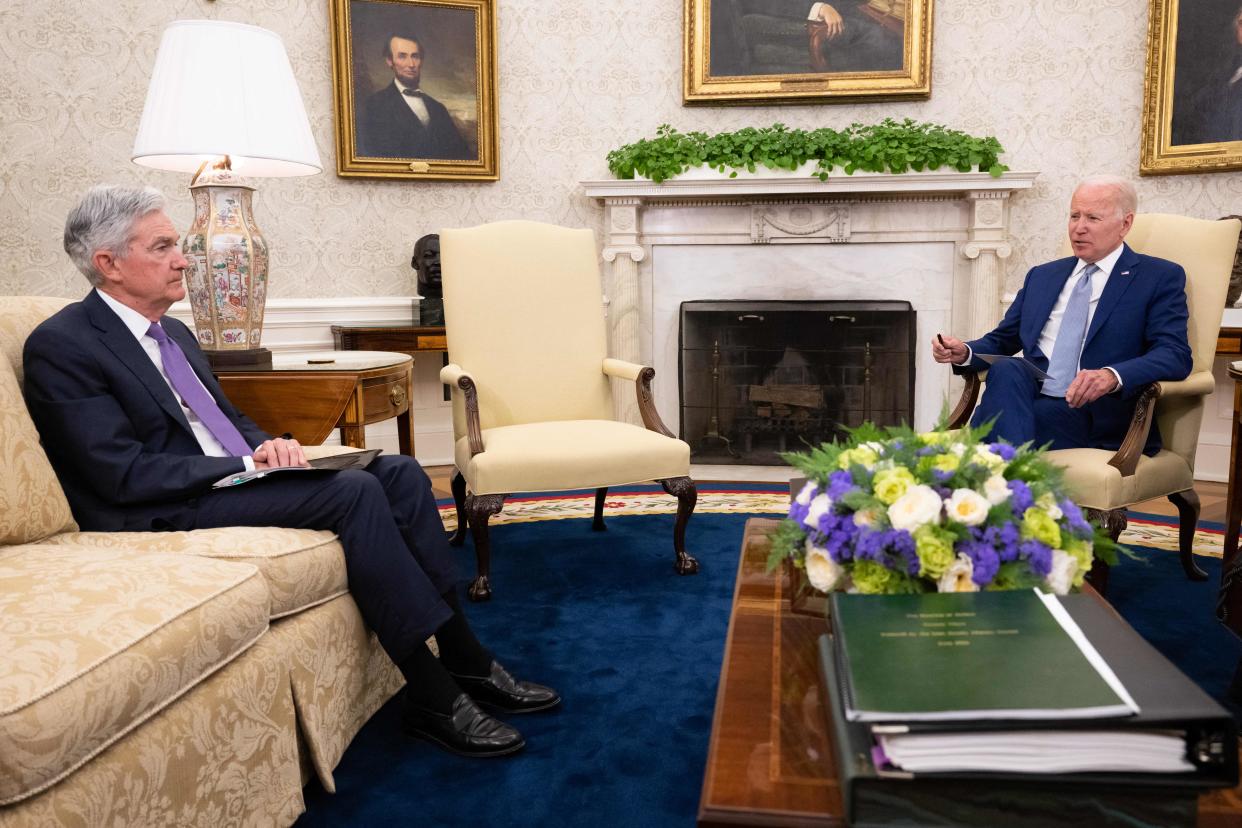Jay Powell pledges to keep the Fed above politics in 2024. It's never that simple.
Jerome Powell is pledging to keep politics off the Federal Reserve's docket in 2024. History suggests it's never quite that straightforward.
The Federal Reserve chair, like it or not, appears increasingly likely to be overseeing a controversial rate-cutting campaign later this year just as the election season nears its climax.
And every move he makes in that direction is likely to be attacked by Donald Trump, the likely GOP nominee who initially appointed Powell but now calls him political.
"We do not consider politics in our decisions," Powell said in a "60 Minutes" interview that aired Sunday. "We never do. And we never will. And I think the record — fortunately, the historical record really backs that up."

His message that any cuts will be based solely on economic factors was at least in part designed as a sort of "Trump-proofing," said Federal Reserve historian Sarah Binder.
Whether it works remains to be seen, but it reflects a reality all Fed chairs face, she added, that "they need political support in order to make tough policy choices."
Powell's predecessors also had to navigate consequential monetary policy decisions amid rising political heat. Their experiences offer lessons for Powell to consider in the months ahead.
Read more: What the Fed rate decision means for bank accounts, CDs, loans, and credit cards
Shifting political winds during the 'Great Inflation' era
Powell also made the case in his CBS interview that incorporating political factors into the Fed's decision making "could only lead to worse economic outcomes."
Political forces have had a more nuanced role in the economic arena historically. Often, as Powell noted, they can lead to dire consequences. But in at least one instance, they appear to have strengthened the monetary policy task at hand.
Both examples made an appearance in the 1970s and early '80s, a period of rising prices known as the "Great Inflation" era.
The downside was evident in 1972. As Richard Nixon successfully ran for reelection under the growing cloud of the Watergate scandal, he helped lead a pressure campaign against then-Fed Chair Arthur Burns to keep monetary policy relatively easy even in the face of growing inflation challenges.
It was a campaign that appears to have had an effect. A recent study of the period by economics professor Charles L. Weise found evidence that "political considerations contributed to delays in monetary tightening, insufficiently aggressive anti-inflation policies, and the premature abandonment of attempts at disinflation."
In other words, the fight against the pre-eminent economic challenge of the day was delayed and undercut by the political class.
But by 1980, the political winds were shifting. A successor to Burns appeared to have been able to navigate that era's politics in a way that actually strengthened his monetary policy goals.
Paul Volcker took over the Fed in 1979 and was immediately in the middle of a 1980 contest between Jimmy Carter, who appointed him, and challenger Ronald Reagan.
Volcker was a former aide to Nixon and was never seen as a close Carter ally. He was able to keep his distance from both sides and — historians say — benefit from an election whose result ended up opening political space for Volcker's historic early 1980s fight to finally vanquish inflation.
Professor Binder, in a book she co-authored on the Fed and politics with Mark Spindel, found that the 1980 election allowed for a political acceptance of the harsh measures Volcker needed.
"Far from a demonstration of Fed independence, the Fed's performance under Volcker's leadership indicates that support from fiscal authorities is necessary for the Fed to sustain unpopular monetary policy," the authors wrote.
By 1981, Volcker raised interest rates to 20%, still the all-time high.

But the winds shifted again in 1984 when Reagan was up for reelection. It was during that campaign, according to Volcker's own memoir, that Reagan and his chief of staff, James Baker, summoned the Fed chair to the White House and ordered him not to raise interest rates before that year's election.
"I was stunned," wrote Volcker, but he added that he was able to not escalate the episode, as "I wasn't planning tighter monetary policy at the time."
Instead of responding one way or another, Volcker said, he simply left the meeting without saying a word.
Other examples
There are also plenty of other episodes from Federal Reserve history that show the perils and promises of setting monetary policy amid political pressures.
Alan Greenspan's historically long tenure atop the central bank featured a notoriously up-and-down relationship with the Bush family. George H.W. Bush openly blamed Greenspan for his 1992 election loss.
"I reappointed him, and he disappointed me," the elder Bush famously said.
But a decade later, the relationship with George W. Bush was much more friendly, after Greenspan raised eyebrows by openly endorsing the 2001 push for tax cuts.

Another election-year episode came in 2008 when the size of the Fed's balance sheet became a hot topic among Republican primary candidates that year.
There is little evidence that the political pressure changed how then-Chair Ben Bernanke approached his work, but at the very least, it reworked his calendar.
Binder and Spindel note how the political pressure led to the need for a PR offensive from "a reportedly reluctant Fed Chair Bernanke." A key part of the plan that year? Multiple appearances on "60 Minutes."
The identical venue that Powell used this week is no accident, Binder noted, saying Powell and Bernanke both knew they needed to send a message but also "build support and protect the Fed's reputation."
Can Powell stay outside the fray in 2024?
It remains to be seen whether Powell can avoid being more overtly dragged into 2024 politics.
Powell cites his own bipartisan record at the Fed as evidence he can navigate the choppy waters ahead. A Republican, he was first appointed to the Board of Governors by a Democrat (Barack Obama), elevated to chair by a Republican (Donald Trump), and then asked to stay atop the central bank by another Democrat (Joe Biden).

He told "60 Minutes" this week that "we are a nonpolitical organization that serves all Americans" and "it would be wrong for us to start taking politics into account."
But that's unlikely to dissuade Trump. The former president telegraphed his coming line of attack when he said in a recent Fox Business interview, "I think [Powell's] going to do something to probably help the Democrats."
Perhaps one factor that will work in Powell's favor in the months ahead is that the broadly unpopular part of his program — raising rates — appears to be done. The likely rate cuts to come will be divisive politically but are likely to be cheered on by investors as well as everyday Americans on the lookout for things like lower mortgage rates.
Powell was asked on "60 Minutes" about the skepticism from some who don't believe the Fed can stay above politics.
"I would just say this," Powell said, "Integrity is priceless. And at the end, that's all you have."
Ben Werschkul is Washington correspondent for Yahoo Finance.
Click here for politics news related to business and money
Read the latest financial and business news from Yahoo Finance
